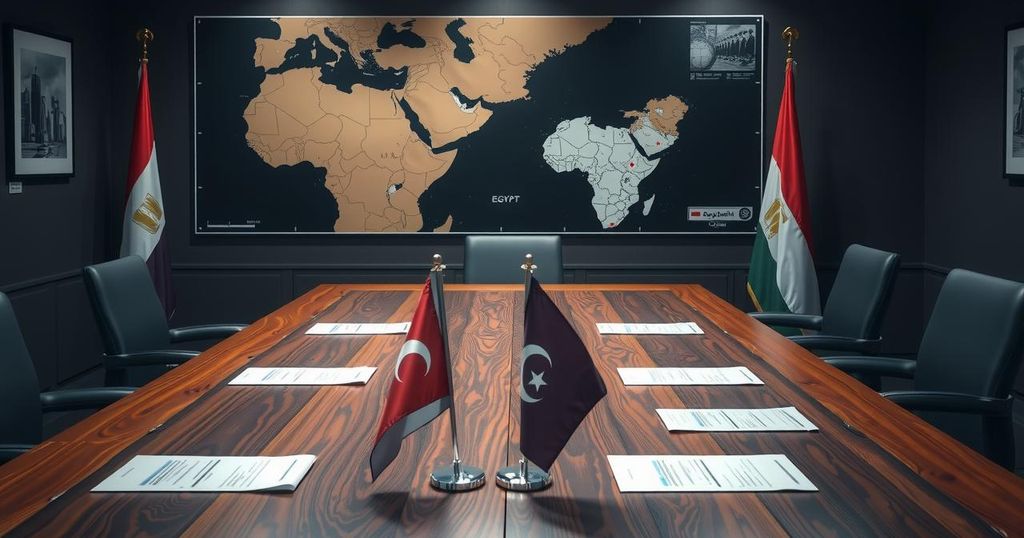Israel Vows to Retaliate After Iranian Missile Strikes on Tel Aviv
Following a missile strike from Iran targeting key locations in Tel Aviv, Israel has pledged to retaliate. Experts highlight the escalating tensions in the Middle East and the ineffectiveness of violence to achieve peace. Calls for U.S. leadership to mitigate the conflict have emerged, coinciding with rising civilian casualties in Lebanon and Gaza.
In light of recent escalations in conflict, Israel has vowed to retaliate following an attack in which Iran launched a barrage of ballistic missiles targeting military and security installations in Tel Aviv. Israeli Prime Minister Benjamin Netanyahu has emphasized that Israel will respond decisively to these provocations. Ryan Costello, a Policy Director at the National Iranian American Council, remarked on the precarious state of affairs in the Middle East, stating, “It’s a very dangerous dynamic where each side is trying to set new red lines or escalate past other red lines, and we don’t know, unfortunately, how devastating this could get”. Costello dismissed the idea that further violence could result in de-escalation, asserting that the situation is far more complex. He criticized the Biden administration’s stance, which reportedly supports Israel’s strategy of “de-escalation through escalation” in its dealings with Hezbollah. He poignantly noted, “The saying is: An eye for an eye makes the whole world go blind. And I think that’s going to be the case if the parties continue to go down that road of trying to escalate.” Costello attributed the heightened Iranian aggressiveness to President Biden’s unconditional support for Netanyahu’s military actions in Gaza and Lebanon, urging for stronger U.S. intervention to prevent the situation from deteriorating further: “What we really need to see here is some US leadership to pull [Netanyahu] back and try to stop this thing from spiraling out of control before it’s too late.” Alongside these developments, the Israeli military has instructed residents of certain areas in southern Beirut to evacuate due to proximity to Hezbollah operations. As Israel continues its military offensive in Lebanon, reports indicate a significant death toll, with approximately 55 fatalities occurring in a single day, marking a troubling escalation when compared to previous conflicts. Additionally, U.S. House Speaker Mike Johnson has publicly called for a robust response from the United States towards Iran, asserting, “We pray for their safety and urge the Biden-Harris Administration to deliver a strong message to the Iranian regime that this unjustified violence and terror must end. The strategy of appeasement has failed…” He emphasized the necessity for a change in foreign policy directed at Iran to contain its aggressive actions. The severity of the current situation is underscored by the increasing civilian casualties, with a total nearing 2,000 within the last year, significantly surpassing losses incurred during the 2006 Lebanon War. Citizens and analysts alike are keenly observing the progression of military engagements and the potential for further violence in the coming days. Al Jazeera continues its live coverage, providing updates as hostilities unfold across the region, particularly concerning Israeli actions in Gaza and Lebanon, along with Iran’s missile attacks on Israel.
The recent conflict between Israel and Iran marks a critical juncture in Middle Eastern geopolitics, characterized by heightened military engagement and rising tensions. Iran’s missile strikes on Israel are viewed as a significant escalation in an ongoing proxy conflict involving various regional players, including Hezbollah. Amidst these developments, global stakeholders, particularly the United States, face mounting pressure to address the intricate dynamics at play and consider the ramifications of their foreign policy.
In summary, the current military engagements between Iran and Israel represent a significant escalation in Middle Eastern tensions. Amid calls for a strong response from the U.S. and critiques of the current administration’s foreign policy, experts express concern over the potential for broader conflict. The situation remains fluid, with many watching to see how involved parties will navigate this precarious environment over the coming days.
Original Source: www.aljazeera.com




Post Comment